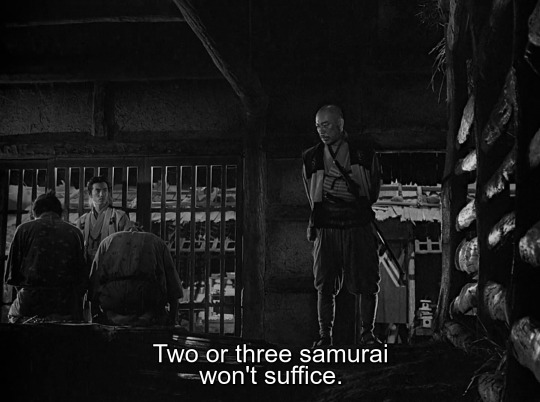make your life story a book you'd want to read. | 💫 pisces sun. sagittarius moon. scorpio rising.💫 | 🤍 infj 4w5 sp/sx. 🤍 | 🦋she/they 🦋
Don't wanna be here? Send us removal request.
Note
From a Watsonian standpoint, who do you think fell in love first between Grindelwald and Dumbledore? What about each other do you believe made them gravitate towards one another?
I think Dumbledore fell first, and Grindelwald fell harder.
Eighteen year old Albus is… lonely. It’s a loneliness coming from a few places. One is his own brilliance: Nicolas Flamel is maybe at his level, he’s a mentor slowly becoming a professional peer... but he’s all the way over in France. Elphias Doge? Half in love with Albus, half in hero-worship. That’s a problem Albus will have his entire life. He’s got people who worship him, and people work for him. But very few people who actually consider themselves to be his equal.
Albus’ other problem is the way he’s hiding a pretty brutal home life. Ariana is dangerous and unstable (the rumors are that his sister's a squib, but he can’t confirm or deny that.) The only reason people don’t think of Albus as the son of Percival Dumbledore the Muggle killer is because Albus’ own accomplishments really are that extreme. He is the shining golden child so people don’t look too closely at what's going on within his family. No part of Albus wants to be at home with them - he wants to be away at school, he wants to be on a European tour with Elphias Dosge (and don’t tell me Elphias wasn’t low-key footing most of the bill for that trip…)
But then his mother dies/is killed by Ariana, Albus becomes responsible for his brother and sister. Because Ariana can’t be moved, that means he’s also effectively tied to Godric’s Hollow. It’s stressful. It’s boring. Albus has no one to talk to.
And then Gellert moves in. It must’ve felt like the sun breaking through clouds. He’s beautiful. He’s fascinating. He’s on Albus’ intellectual level. And he’s not suck like Abus is. No, he’s driven, he has plans, he has incredibly grand hopes for the future. Albus would take one look at him and be - this is it. You are the answer. We are going to discover the secrets of the universe together.
Now Gellert has recently been kicked out of school for dark magic related activities, and is effectively lying low in Godric’s Hollow. But honestly, he kind of wiggled out of any serious consequences. If anything, his mindset is probably more “I’ve already learned everything Drumstrang had to teach me. Good riddance. Now I just have to wait, and think about my next move.”
Seeing Albus for the first time probably wouldn’t have blown his socks off. Gellert (as Harry tells us, multiple times) is very handsome, while Albus is probably more… interesting looking. Good looking in an unconventional way. But Albus is clever, and would have found out who exactly his new neighbor was very quickly. He’d hear about the dark magic and… not care. Probably just be more intrigued. Albus is desperate for someone to talk to, and whatever dark magic Gellert was up to, I’m sure it had to at least be interesting.
So Albus tracks down Gellert, and he’s asking all of these questions. All these really good questions. At first Gellert is flattered (also, he can tell that Albus has a crush on him. That’s not especially unusual, if you’re Gellert Grindlewald.)
But once he spends a little more time with him, I think he starts getting a little awed by Albus. This isn’t like Elphias Dodges’ hero worship, this is 'I want to put Albus Dumbledore in a jar and study him.' How can he be this good? How can his well of knowledge be so deep? How does he pick up everything I show him so fast…and immediately start adding improvements. How is he able to solve these magical problems and conundrums that I’ve been struggling with so easily?
Albus starts trusting him a little bit more. He doesn’t tell anyone about the details surrounding his father attacking the muggles, or about what’s going on with Ariana. But he tells Gellert. He tells him about the pressure he feels being responsible for them. How he can’t help resenting the way his family ties him down. He wants things to be different so badly, but doesn’t know what he's supposed to do.
I think that getting to see Albus’ vulnerability this way, his darkness, his cracks - things which he doesn’t show anyone - is what gets Gellert properly falling in love with him. Albus saw his darkness and didn’t back off, and now Gellert gets to return the favor. He probably starts getting a little romantic about all this, starts attributing the fact that they met to fate, thinks of Albus as this wonderful gift the universe is giving to him… but then Gellert’s perspective kind of shifts, and he starts believing that really he’s Albus‘ gift. He’s meant to save Albus, because it’s a crime that anyone this extraordinary should truly think that they’re trapped, and that their life needs to stay so small.
He convinces Albus to leave, says they'll be able to take Ariana with them. I bet Gellert believes it too. He and Albus are so powerful, so talented, so knowledgeable, so off the charts in every way - what could Ariana possibly do that the two of them wouldn't be able to handle?
But then, of course, the duel happens. Ariana dies (and I do think it was probably Albus who accidentally killed her.) We know that Gellert ran right after this. But I think this is a situation where Albus is in shock, Gellert is grabbing his arm, dragging him towards the door, saying - we’ve got to get out of here. Don’t worry, it’ll be fine, I can fix this.
Albus can’t do it. He did wrong, and he has to face his punishment (a punishment I don’t think he ever feels he actually received. The closest he gets is Aberforth breaking his nose at the funeral, which is why he lets it stay broken.) There’s a lot of dark, sticky stuff in Albus Dumbledore's psyche. Stuff I don’t think he’ll ever let anyone see - both because he’s so hyper-competent he can mask it, and because it is his job to protect people (that’s the only thing he thinks he’s good for…) Showing people his darkness and weakness, the way he showed it to Gellert - that is the opposite of protecting them.
If he’s honest with himself, I do think there’s a part of Albus that wishes he had been weaker, that he had run with Grindelwald that day. Best case scenario - maybe he could’ve influenced him, steered him down a better path (does that mean the blood of Grindelwald‘s victims is on his hands?) Or maybe it would have gone the other way, and without Ariana's death he would have ended up a worse Dark Lord than Grindelwald ever was. But more realistically… I think Albus knows that he and Grindelwald would have eventually had a falling out. But maybe not for a couple of years. Maybe Albus could’ve ignored the red flags that long. Maybe he could have had a few years - running around Europe, being young, powerful, and in love.
Instead, Albus goes back to Hogwarts to hide. Because he can’t trust himself anymore. He can’t trust his judgment, he can’t trust himself with any kind of power. News of Grindelwald comes every day. He’s becoming more powerful. Dumbledore could stop him - but doesn’t. I think he’s worried that he saw Grindelwald again… (if Grindelwald is still in love with him…) (of course Grindelwald is still in love with him...) If Gellert asked him to leave Hogwarts and come with him, Albus is worried that he might say yes.
But in the end, Dumbledore does face him. Grindelwald fights him with the Elder Wand, but Dumbledore still wins. I like to think it’s because Gellert just cannot bring himself to kill him. Cannot bring himself to imprison him. He loves Albus too much. Albus is a work of art he cannot bring himself to destroy or lock away.
But Albus is prepared to lock Grindelwald up. So the Elder Wand - who always knows who has the power in a dynamic - becomes Albus.’ He defeats Grindelwald, and then uses Grindelwald’s wand the rest of his life. He’s buried with it. I do think that Albus' intention was to die the wand’s last true master, both as a favor to the world, but also as a kind of romantic gesture. Because what is Voldemort compared to Grindelwald? Voldemort doesn’t deserve that wand. Gellert dies, tortured and killed by Voldemort, refusing to give up Albus, laughing. Because he knows how good Albus is. He knows how brilliant he is. He knows how ice cold he is. And (if Gellert is honest with himself) that only makes him love Albus more. After all, he was right. Albus really was a force of nature who took over the world without anyone realizing. Voldemort doesn’t stand a chance.
133 notes
·
View notes
Photo

Emily Dickinson, One need not be a Chamber — to be Haunted
162 notes
·
View notes
Text
"America is the wealthiest nation on Earth, but its people are mainly poor, and poor Americans are urged to hate themselves. To quote the American humorist Kin Hubbard, 'It ain’t no disgrace to be poor, but it might as well be.' It is in fact a crime for an American to be poor, even though America is a nation of poor.
Every other nation has folk traditions of men who were poor but extremely wise and virtuous, and therefore more estimable than anyone with power and gold. No such tales are told by the American poor. They mock themselves and glorify their betters. The meanest eating or drinking establishment, owned by a man who is himself poor, is very likely to have a sign on its wall asking this cruel question: 'if you’re so smart, why ain’t you rich?' There will also be an American flag no larger than a child’s hand – glued to a lollipop stick and flying from the cash register. Americans, like human beings everywhere, believe many things that are obviously untrue. Their most destructive untruth is that it is very easy for any American to make money. They will not acknowledge how in fact hard money is to come by, and, therefore, those who have no money blame and blame and blame themselves. This inward blame has been a treasure for the rich and powerful, who have had to do less for their poor, publicly and privately, than any other ruling class since, say Napoleonic times.
Many novelties have come from America. The most startling of these, a thing without precedent, is a mass of undignified poor. They do not love one another because they do not love themselves.”
Kurt Vonnegut, Slaughterhouse-Five (1969)
364 notes
·
View notes
Text
Annie is a force of nature when she challenges Cornbread. She is the gravitational point for all the other characters. Cornbread tries to move around her, to address Smoke, because it's Elijah who is considered the weaker link, not she. Yet he does not succeed because Annie's concerns are not dismissed. She is the carrier of knowledge, of tradition. All the characters in that room have her in high regard. She is LISTENED to and she is never treated as some paranoid, hysterical woman. I found it refreshing.
8K notes
·
View notes
Text
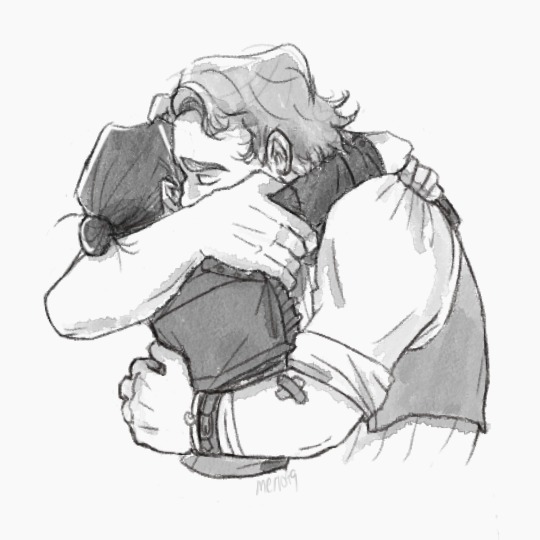
There was a time when every argument was resolved like this
2K notes
·
View notes
Text
SORTING DISNEY LADIES (1999-2004)
Part 1 - Disney Ladies 1937-1985
Part 2 - Disney Ladies 1988-1993
Part 3 - Disney Ladies 1995-1998
I’m going in chronological order, and doing both A Squad and B Squad, because I’m interested in tracking how the ideal “disney girl” has changed in the last (almost) 90 years. Right now I’m only looking at the human-shaped heroines of Disney animated theatrical releases. A more detailed break-down of the system I’m using is right here, but the basics are these:
PRIMARY (ie MOTIVE)
BADGER ~ Loyal to the group.
SNAKE ~ Loyal to yourself and your Important People.
LION ~ Subconscious Idealist. Ideals are linked to feelings and instincts.
BIRD ~ Conscious Idealist. Ideals are linked to built systems and external facts.
SECONDARY (ie METHOD)
BADGER ~ Connect with the group. Make allies, work steadily and well. Be whatever the situation calls for. If you find a locked door, knock.
SNAKE ~ Connect with the environment. Notice things. Tell people what they want to hear. If you find a locked door, get in through the window.
BIRD ~ Collect skills, tools, knowledge, personas, useful friends. If you find a locked door, track down the key or learn to pick the lock.
LION ~ Be honest, be direct, speak your truth. Either the obstacle is going down or you are. If you find a locked door, kick it in.
JANE PORTER (1999)
(& Tarzan, Kerchack)
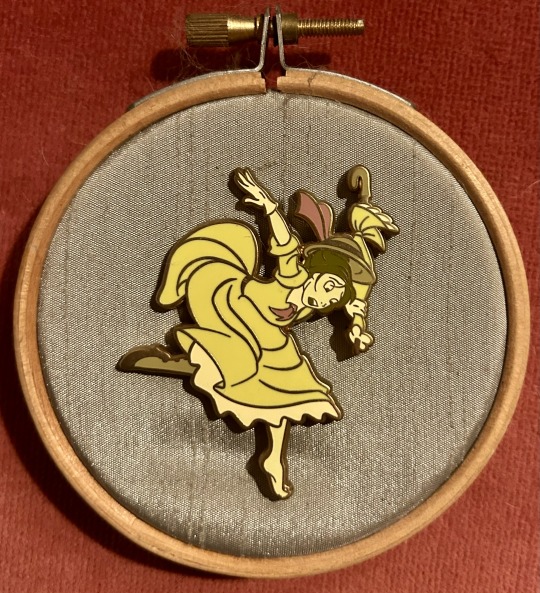
Disney’s Tarzan is a ridiculously Snake primary movie. Like, just to make this really, really clear, the first thing we see - the absolute cold open, is -
Burning ship! Storm! Fire! Tarzan’s parents get into a lifeboat! He looks at her. She looks at him. Phil Collins --
PUT YOUR FAITH IN WHAT YOU MOST BELEEEIVE IN!!!!!!
We get it. You can lose literally everything, but if you’ve still got your Person, you’re going to be OK.
And this movie’s ethos is definitely Snake, not Loyalist. Badger primaries do not get a flattering edit. The antagonist for the first half is Tarzan’s adoptive father Kerchack, who is deeply protective of his band of gorillas (all girls, by the way. He's the only guy. Which is how gorillas work, and the film doesn’t exactly bring attention to it, but still. Interesting detail.) He’s a loud Badger primary: the only thing that matters is keeping his family out of danger, and from his perspective Tarzan is a problem from day one. He is too obviously an outsider, not a true member of the community, and Kerchack makes it clear that Tarzan is not his son. “You can’t learn to be one of us," he says.
The antagonist for the second half of the film (it’s a weirdly structured film) is the Jaguar/Clayton. They are 100% the same entity. Clayton shows up immediately after the Jaguar dies, and shows up wearing the exact same color palette. There is a recurring misunderstanding where Tarzan refers to the sound of a gunshot as “Clayton.” This is not supposed to be a person, this is violence personified.
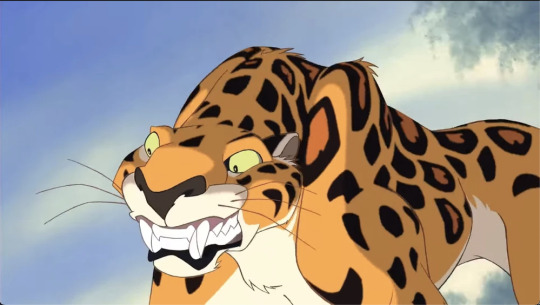
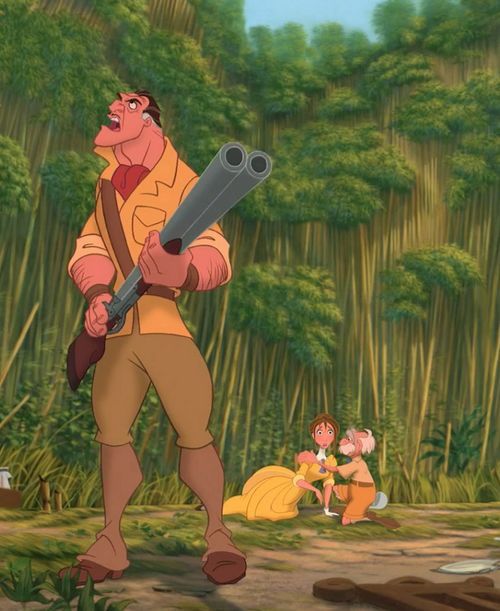
Clayton is also our visual representation of The British Empire/Colonialism, with his spats and his khakis and little pencil mustache, and Brian Blessed doing his voice. He is there to grab the resources (gorillas) and take them back to England. So… that means we’ve got some more Toxic Badger going on here too.
In this film, the Badger primary idea of “community” is framed as stifling, artificial, at odds with nature. Clayton, Jane, and Jane’s father show up in the jungle dressed all wrong, and while the sympathetic Porters gradually shed layers, Clayton’s character design never changes. He does not learn to adapt to the jungle, he is only England™
There’s also the recurring joke of Jane’s “Proper Victorian Lady” persona. It’s very useful for getting Clayton specifically to do things for her… but she also brings it out in moments where it seems false and not terribly appropriate. Like when she’s talking to monkeys, or to Tarzan. The second she realizes that Tarzan can speak English she snaps into “Proper Victorian Lady” instead of following up on the attraction that’s clearly there. She’s holding him at arm's length, and why??? The moment where he comes out dressed in European clothing is bittersweet, like Tarzan is hiding or losing part of himself. “Society” is at odds with instinct/freedom/love, and in terms of Primary, that’s the major conflict between Tarzan and Jane.
JANE. Tarzan, you can't imagine what's in store for you. You're going to see the world. Everyone's going to want to meet you. Kings, scientists and famous writers. (...) TARZAN. And I'll be with Jane.
Jane is talking like a Badger (you’ll be part of the community.) Tarzan is talking like a Snake (I’ll be with you.) And Jane DOES feel like a Badger through most of the movie. She talks a good game. But right at the end - when it really comes down to it - that’s not the call she makes.
JANE. I belong in England, with you and people and — PROFESSOR PORTER. But you love him. Go on.
At which point Jane joyfully jumps off the boat and swims to shore, implying that her Badger primary was a model, and she was always a Snake primary underneath.
Jane Porter might model Double Badger extremely well, but she’s actually a double Snake like Megara. She’ll go all Proper Victorian Lady to flatter Clayton, but she’ll also manipulate the baby monkey (“Oh I can’t believe you fell for that one”) before commenting on how its performance isn’t quite up to her standards (“Don’t give me those crocodile tears.”) She’s also something of a Single-Player Environment snake. When she gets comfortable, she starts learning how to use the things in her environment. She’s delighted when she learns she can use her parasol as a weapon. Jane also seems to pick up that Tarzan is a Bird secondary, and interacts with him accordingly. She puts together an entire slideshow of buildings and customs and art from the mainland, and he is riveted.
(Tarzan is definitely a Bird secondary: he's an inventor, he makes weapons, he loves teaching himself things. He’s much more tactical than Kerchak, who uses his lion secondary to literally charge into fights. Phil Collins tells us all we need to know about Tarzan with the lyrics: “I want to know / Can you show me?” Perfect Snake Bird anthem.)
When we see Jane at the very end of the film she’s entirely improvisational and fluid, surfing the vines with Tarzan, the two of them so in sync and moving together so beautifully. It’s a gorgeous bit of animation. I definitely get a sense of the joy she feels at being so unconstrained and evenly matched, which is another thing that makes me say Snake secondary.
KIDADIKASH “KIDA” NEDAKAH (2001)
(& Milo, King Kashekim)
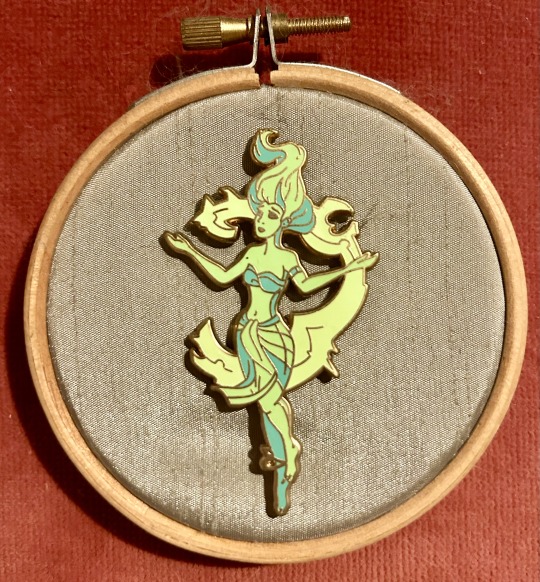
Atlantis is so close to being a good movie. All it needs is a slightly longer runtime, and like… two less characters. (Mole and Cookie. Don’t need them.) Kida gets less screen time compared than some of the the other ladies on this list, but she has enough presence and a cool enough design that she easily earns heroine status. It also helps that she’s basically the plot.
Kida wants to restore the traditions and knowledge her people have lost, and that motivates pretty much everything she does. She finds the history and culture of her ancestors deeply important, comforting and grounding in a very Badger primary sort of way, and laments that “We were once a great people. Now we live in ruins. The kings of our past would weep if they could see how far we have fallen.” She is very much not Jane, who needs to shake off “civilization” in order to live her best life.
The problem though, is that Kida falls into a very Badger primary trap. When she’s asked to give up everything to protect the group - including her well-being and identity - she does it without a second thought. She gets turned/turns herself into a magic crystal in order to power her civilization while it’s under threat, and I cannot think of a better metaphor of what it means to be an Invisible Badger, who is only the group with no identity outside it.
The ‘Heart of Atlantis’ crystal that “thrives on the collective emotions of all who came before us [and] in return, provides power, longevity, protection” is just a good metaphor for a ‘Badger Primary’ in general. Also, the way that the Atlantean King tries to weaponize it, ultimately destroying his civilization, is a good metaphor for the way a Badger primary can Explode, becoming authoritarian and harmful to the same people it is trying to protect.
Clearly the film itself is not a fan of this decision, as our protagonist Milo loves Kida and does everything he can to un-crystal her. I think it’s implied that his love is one of the main things tethering her to humanity? Still, I would say that this film, unlike Tarzan, has a pretty Badger ethos. King Kashekim is our tragic misguided Snake primary, willing to let his whole civilization crumble so long as he gets to keep his daughter, and our villains seem to be mostly Hedonist Snake treasure hunters, willing to destroy a culture so long as they get paid. The film is definitely critical of certain types of Badger primaries, but ends on a note of collectivism. Milo has finally found a community that values him, and he stays behind to help Kida, now the Atlantean Queen, rebuild her civilization. She’s still a Badger, just one with better boundaries.
She’s also a Lion secondary. Kida moves in straight lines, speaks her mind, and doesn’t care if you have a problem with that. She does the thing where she’s so honest and blunt it’s almost rude. I suspect that her father is also a Lion secondary - we know that he was reckless and militaristic when he was young, and he seems positive that if Kida even knew about the Heart of Atlantis, she would make the Lion secondary call and dive headfirst into it. Sadly, in the main timeline of the movie the King’s secondary is extremely burned, and he’s basically incapable of any kind of action.
Milo has an idealistic Lion primary that is a bit Burnt at the start of the film. When we meet him, he’s spent years being told that everything he believes is a joke, and he’s finally starting to doubt himself, scraping by just using his Bird secondary. Like a lot of Burnt Lions, Milo latches onto someone (Kida) for their confidence and their purpose. Luckily, once he unBurns there's a Paragon Lion under there that matches up very well with her Badger.
LILO PELEKAI (2002)
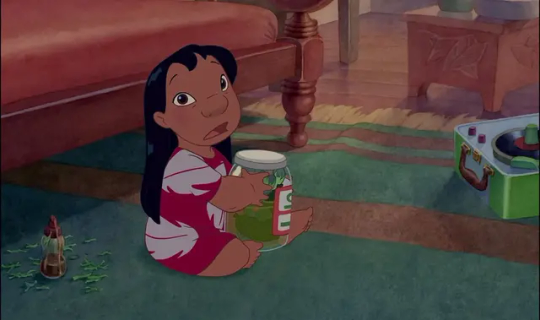
Lilo is an interesting one to sort, because she’s little - and also kinda going through it. Her parents died in a (fairly recent) car crash, and even though they’re not *on screen* and honestly mentioned very little… their absence is felt. Lilo's unofficial family motto is “Ohana means family, family means nobody gets left behind.” But objectively, Lilo’s parents did her behind, and she spends the entire film trying to reconcile that.
Lilo is very young, dealing with a tragedy, and I also think the interpretation that she’s on the autism spectrum makes a lot of sense. We see her having meltdowns, struggling to transition from one activity/location to another, she clearly wants to make these connections with kids her own age, but it’s just… not working. All of that could absolutely point to a five (six?) year old on the spectrum. So the question becomes - okay, so is Lilo acting this way because that’s her personality, or is she acting this way because of the autism/trauma? That's a question I get a lot, and my answer is… I don’t think the traits this system is interested in are created out of nowhere. But, circumstances can absolutely make them louder or softer.
Like, Lilo has a number of very strict rules that tip over into magical thinking. She can only eat peanut butter sandwiches because she has to feed part of her sandwich to her fish, and she can’t feed her fish tuna (dead fish) because that’s “an abomination.” It’s very important that she keeps her fish happy because her fish controls the weather. And THAT’S important… because her parents died in a rainstorm. All of this is 100% a coping mechanism: Lilo is trying to create rules in a chaotic world to feel safer. She’s after a sense of control. This also ties into her fascination with 'goodness' versus 'badness:' she’ll say things like “I’ll be good I promise,” worry about being an “abomination,” make charts of Stitch's "badness level" and also voodoo dolls because “my friends need to be punished.” It’s something she's focused on, and I think it’s because she is aware that… she’s kind of a problem.
Her older sister Nani loves her… but Nani also loses her patience (she’s 21, 22 at most) and Lilo is aware that she stresses out her sister and makes her life more difficult. But, she has trouble changing her behavior because she's, you know, a traumatized autistic six-year-old. Which is really important when it comes to understanding Lilo’s relationship with Stitch. On one level, she identifies the way he leaves all this destruction in his wake. He makes her look better by comparison, and I think she also sees a path towards redemption in teaching Stitch to be “good” (ie - useful and less weird.) When she tells him “You wreck everything you touch, why not try to make something” - I think she’s projecting, and really talking about herself. If Lilo is teaching Stitch to be good, then she has a purpose, and a way to affect the world. We know that feeling powerless is a big thing for Lilo.
So, if I’m putting her in the SHC system, she is definitely an External primary. None of this is about being true to your heart or even being true to another person, this is trying to figure out the rules of the world and putting together a workable system to live with. This focus on morality and punishment is also something I see a lot with young External primaries. While this trait might have been exaggerated by the events of Lilo's life, I do think it’s something that was just in her the whole time.
At first I thought she was a Badger, because of the way Lilo focuses on the importance of family. Also, her first instinct after she thinks Stitch has betrayed her is to outgroup him: “You’re one of them - get out of here.” But “Ohana means family” seems like it was something her parents said a lot, and ‘Stitch isn’t one of us,’ is something she’s heard from Nani (absolutely a Badger primary.) I think a big reason Lilo values hula dancing is because hula dancing is important to Nani.
So now I’m leaning towards Lilo being a young Bird, trying to cobble together a system for understanding the world under non-ideal circumstances. She’s very comfortable believing fantastical things, and is cool with accepting that Stitch is a weird kind of dog. Like Atlantis, Lilo and Stitch is lightly critical of that Badger ethos: the group is wonderful, yes - but the group will not always be there. The conclusion Lilo (and the film) comes to is ‘Ohana means family, family means never getting left behind… but sometimes people leave. Either because they want to, or because they have to. What you have to do is remember them. You make them part of yourself. As Lilo puts it, "I’ll remember you, though. I remember everyone that leaves." I think this is such a lovely way of understanding Bird primaries, which unfortunately have a reputation for being cold and detached.
In terms of secondary, I think Lilo is probably a Lion. She’s very direct, very honest, terrible at lying, and unintentionally trails destruction. Nani tries to give her a kind of script to follow when the social worker comes over - but even in the moment she seems to know it’s kind of a lost cause. However, Lilo is also really young and the narrative doesn’t give her the opportunity to solve many problems. So I would not be surprised if Lilo's secondary looks different when she gets older. She is fascinated by Stitch, and Stitch is a shapeshifter-mimic. He’s kind of a cartoon version of a Snake secondary. Maybe that's a clue that Lilo's best self is a Snake Secondary too, but she hasn’t built a bridge to that part yet. Eh, I could see it either way. Definitely an Improvisational secondary though.
NANI PELEKAI (2002)
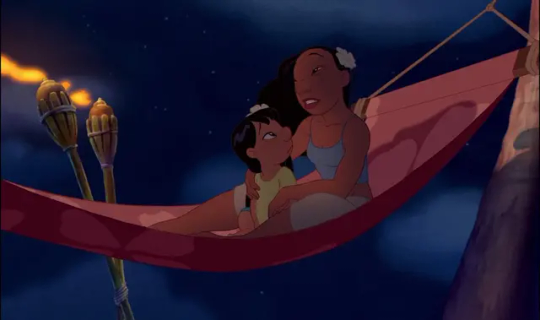
Nani is a very Burnt Badger primary. There’s this recurring thing with her and her love interest David, where they’re kinda dating, or were dating… either way, Nani can’t quite bring herself to let him into her life. Even though she likes him, he likes her, and he even gets along with Lilo. She spends a lot of the film looking like she’s 100% focused on her little sister in a Snake primary way… but Burnt Badgers look like miserable, stressed-out Snakes, and that is absolutely Nani. She clearly used to have a big community - at one point she even tries to leverage it for a job. But I think she responded to the death of her parents by closing up, refusing to let anyone new close to her. She might lose them too, and that would hurt too much.
This film is also really good at putting Nani in situations that would be really rough on a Badger primary specifically. Nani clearly feels deeply connected to her Hawaiian culture - she’s an accomplished hula dancer, she loves surfing, and in the most heartbreaking scene of the movie she sings “Aloha Oe” to Lilo, when she thinks child protective services are going to take her away in the morning. This is famously a song written by deposed Hawaiian Queen Liliʻuokalani, after she was forced to leave her people. These are all things that Nani pulls on to give her strength. However… she is also working as an honestly quite objectified waitress/hula dancer in a theme park-ified version of Hawaii catering to tourists. She’s clearly not happy there, and it's an important moment when she leaves.
Even when she’s in really serious trouble, Nani can’t bring herself to tell anyone what’s going on, to get help or even just emotional support - and that's the Burnt Badger talking. When she is absolutely at her wit’s end and has no idea what to do, she grabs David and she grabs Lilo and they all go surfing. It’s that Badger primary need for community, even if there’s no way that community is going to help.
Nani is probably a Bird secondary. She practices when she's nervous and has a lot of skills - but is much more overwhelmed during the wacky finale than Lilo, and definitely needs a second to get it together and figure out the situation. She conceptualizes ‘dealing with Lilo’ as a skill that she has learned and gotten better at: she’ll build little ‘traps’ to catch her younger sister, and can translate things into “Lilo.” I think she may have constructed a bit of an Actor Bird model for dealing with Lilo (and another for dealing with her boss.) Lilo will use bits of her system to argue with Nani, and clearly expects this strategy to work.
LILO. Ohana means family. Family means no one gets left behind, or forgotten. NANI. I hate when you use ‘ohana’ against me.
CAPTAIN AMELIA SMOLLET (2002)
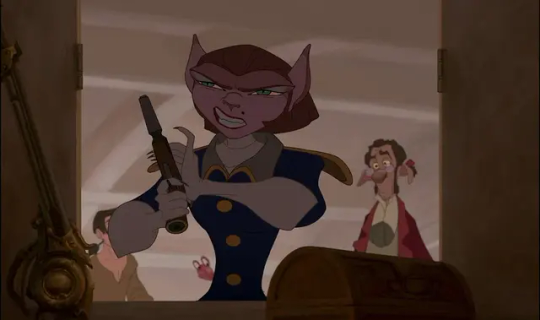
If Nani and Kida share a deep connection their cultural history, Captain Amelia and Kida share this incredibly direct, blunt, borderline rude Lion secondary. Only Amelia's is is less 'cultural misunderstanding' and more just... British.
Captain Amelia absolutely rubs Jim Hawkins and Doctor Doppler the wrong way (an occupational hazard of being a very loud Lion secondary.) But she also comes off as extremely trustworthy, which you get from the You-Move secondaries (Lion and Badger.) Amelia is a version of Robert Louis Stevenson’s Alexander Smollett (just also a cat girl, and in space) and this bit from Treasure Island suits Treasure Planet equally well: “Contrary to all my notions, I believe you have managed to get two honest men on board with you, that man [Captain Smollet] and John Silver.”
Of course, Captain Amelia wins over Jim and Doppler once they understand that she wants her crew to be equally direct right back at her. She wants all the information, as quickly as possible, so she can make the best decisions. Her eyes light up when Doppler tells her she’s wrong about how supernovas work... because she’s able to use the new knowledge to create a daredevil way to escape the situation. Near the end of the film, Jim comes up with a crazy solution that involves a piece of alien tech. He knows how the tech works, doesn’t have time to explain it. But because they’ve had enough practice being honest with each other, Amelia just does what he says - no questions asked.
This is also why she gets so offended when John Silver tries to flatter her… and Silver’s good at flattering. He charms his crew, he charms Jim. But Amelia tells him to “keep that kind of flim-flammery for your space court floozies” because of course the two captains on opposite sides of the mutiny should be foils. Silver makes Jim feel important and special. Captain Amelia tells him point-blank when he’s being an idiot and gives him no special treatment. The nuanced position this film takes is that Jim… kinda needs both.
In this movie about treasure hunting, Captain Amelia is the only character who doesn’t seem to care about the “Loot of a Thousand Worlds" at all. She is here to do her job, and is deeply skeptical about treasure hunting in general. Her speech at her First Mate’s funeral makes her priorities very clear: “Mr. Arrow was a fine spacer. Finer than most of us can ever hope to be. But he knew the risks, as do we all. Resume your posts. We carry on.” Her highest praise is that Arrow did his job well... and part of doing your job well is making peace with the fact that you might not make it out alive. She takes her job, her title, and her ship extremely seriously.
So, Amelia is definitely an Idealist primary, and her Cause seems to revolve around being the best Captain possible and… going on adventures. This is also the case with Doppler, who she ends up with at the end. He frames his treasure hunting trip in very Badger primary language when he’s talking to Jim’s very Badger Primary mom… but in reality he just wants to go on an adventure.
I could honestly see either Lion or Bird primary for Amelia. But, the fact that she’s ex-military and still in good enough standing to write Jim a recommendation letter makes me lean Bird. (I think a Double Lion Amelia would have burned more bridges.) Also, the rules and organizational system she lives by seem to exist outside of her in a very Commodore Norrington sort of way. It’s not something she feels internally, and this is comforting. Honestly, Amelia gives off very Commodore Norrington energy in general, and he’s a pretty loud Bird primary.
HELEN "ELASTIGIRL" PARR (2004)
( & Bob/Mr. Incredible, Edna Mode)
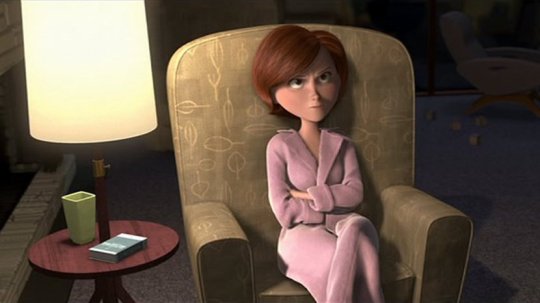
Helen’s superpower is ‘flexibility,’ so of course she’s going to be an Improvisational secondary. I'm going with Lion instead of Snake because - like Captain Amelia and Kida - Helen is very comfortable being incredibly direct. She actively sets up confrontations, waits in the dark for Bob after he stays out late with Frozone, then actually gets in a plane to confront him when she thinks he’s having an affair.
Bob Parr is also a Lion secondary, and unlike Helen (who is able to turn down the volume during Dash's parent-teacher conference) he has trouble even softening what he says, phrasing something in a way that’s palatable to the person he’s talking to. That trait gets him in trouble with Buddy/Syndrome, then his boss at the insurance company, and there’s also the implication that the government keeps relocating them because Bob keeps blowing their cover. (This is 100% the case in a cut scene set at a neighborhood barbecue, where Bob appears to cut off a finger and instead breaks the knife.)
I also think the fact that Helen and Bob are both Lion secondaries is a big part of what makes their relationship functional. Lion secondaries seem to really value the opportunity to have arguments and fights… while also knowing the interaction is fundamentally safe, and isn’t going to spill over into the other parts of their life. When Bob gets back late, he and Helen fight in a way that honestly just seems like their way of blowing off steam. They’re both able to turn it off completely when the kids walk into the room.
Helen also calls herself out for “overreacting” and has to force herself to take a moment to think when she first figures out that Bob is lying, a very Lion secondary moment. She gives Violet the insanely Lion secondary advice that “When the time comes, you’ll know what to do. It’s in your blood.” Edna Mode is also a cartoonishly loud Lion secondary, and I'll bet that shared secondary is a big part of the reason she adores the Parrs. Also, Helen loves her motorcycles, which at least in fiction is a very Lion-secondary coded mode of transportation.
Helen’s flexibility extends to her primary as well. When we first meet Elastigirl in the “documentary” prologue, she’s completely happy doing the superhero thing while Mr. Incredible is already thinking about settling down. But, in the main timeline of the movie, Helen seems perfectly happy doing the suburbia thing and raising the kids. Then in the sequel, after the Deavors convince her that she can do the most good by being a poster child for non-threatening Supers, she has a fantastic time doing that instead. The fact that she’s able to change her worldview so easily without having a big emotional crisis about it (the way that Bob does) makes me think she’s probably a Bird primary. That difference in primaries seems to be where most of the friction in their relationship comes from.
Helen actually tells us her philosophy in the sequel: “If laws are unjust there are laws to change them, otherwise it’s chaos” and “World is what it is, we have to adapt.” It’s a bit Badger flavored - work within the system, adapt to the system - but the way she lays it out is Bird. And then she gets a little tipsy and starts debating philosophy with the villain for fun. Which is a very Bird primary activity.
VIOLET PARR (2004)
(& Dash)
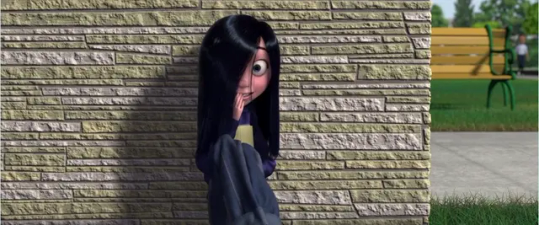
Violet feels very at odds with both her family and her world… and since she’s a Badger primary, that’s especially rough. She wants to fit into a community, but there is no community for her. She’s the only member of the family who actively does not want her powers: “We act normal, Mom! I want to be normal (...) What do you know about normal? What does anyone in this family know about normal?” We also get the line, “Mom and Dad’s lives might be in danger, or worse - their marriage.” Which is definitely a joke about Violet’s slightly cartoonish Badger primary priorities.
It makes absolute sense that she’s so hung up on the idea of popular dreamboat Tony, at the center of so much community, since that's exactly what she wants. And because she herself is very not normal, she tries to hide - both with her superpower and with her hair. Violet is the first computer animated character who wears their hair long and loose, and the animators put in the effort because it’s so tied in with her character. As she gets more and more in tune with her family over the course of the film, the way Violet wears her hair changes. Her mom tucks it behind her ear, her dad comments that he likes this new way she’s wearing it better. She eventually pushes it back with a headband because she’s not hiding from them anymore. Violet is happy and effective being a part of the superhero team that is her family. It’s interesting that her powers (invisiblity, creating force-fields around herself) are fantastic support/team-attack powers, but not that useful on their own.
However, one more source of friction between Violet and the rest of the family is that she’s the only non-Lion secondary. Her little brother Dash is a Lion. (He’s probably a Double Lion like his father, they’ve both even got a little of that Glory Hound Lion primary thing.) But Violet’s powers keep her out of sight, she is the opposite of confrontational. It took me a second to recognize her as a Snake secondary, because most fictional Snakes are much more comfortable around people… but Violet is also in a less-than-ideal situation. Still, she is observant, good at picking up on what’s going on around her, and uses those things to solve problems. It’s her idea to track down Syndrome using the coordinates he’s put in the rocket, and in the sequel she’s the one who figures out how to use Jack Jack like a gun, and successfully turns the out-of-control ship around.
Violet is sneaky, using her abilities to spy on her parents and stow away on her mom's trip. She doesn’t like using her snake secondary at other people - she’s very self-contained - but she is more than happy to direct it out at the world. Violet is also perceptive when it comes to people, and will often just come right out and say things like “Are we going to talk about it… the elephant in the room” or “I think Dad has made some excellent progress today, but I think it’s time we wind down now.” Which can look a little like Lion... but in this case, it's definitely Neutral Snake.
Tl;dr
Jane ~ Snake / Snake, models Badger / Badger
Tarzan ~ Snake / Bird
Kerchack ~ Badger / Lion
Kida ~ Badger / Lion
King Kashekim ~ Snake / Burnt Lion
Milo ~ Burnt Lion / Bird
Lilo ~ Bird / Lion (possibly Bird / Snake)
Nani ~ Burnt Badger / Bird
Captain Amelia ~ Bird / Lion
Helen/Elastigirl ~ Bird / Lion
Violet ~ Badger / Snake
Dash ~ Lion / Lion
Bob/Mr. Incredible ~ Lion / Lion
Edna Mode ~ Bird / Lion
(art credit to Cursed Concepts for the beautiful pins I have used to illustrate this series. They're actually having a charity sale right now (December 27th-31th) to benefit Make A Wish, so head on over if you like their style and want to maybe snag a deep cut like Jane, Giselle, or Eilonwy.)
100 notes
·
View notes
Text
some worldbuilding notes for a hypothetical american magical school in the harry potter universe
Since I feel especially annoyed about ilvermorny today
Okay. So a fairly important difference between England (& Europe) and the Americas is that North/South America is really, really big. Population groups can be a LOT more spread out, which is important. If you’re going to give me a statistic like “one in every 10,000 people is a wizard” well, that means that early on, you’re statistically not going to know any magical people outside of your (presumably mostly magical) family, or like… rumors of A magic guy a hundred miles away, who you then track down and apprentice with.
In order to get away from the model of “my parents teach me magic” or “I am one of three apprentices of this one magic guy”... then you’re going to need a population center. The biggest pre-Columbian population centers that we know of are Teotihuacan (which seems to have fallen apart circa 750) and Cahokia (which seems to have fallen in the late 1300s.) We know almost nothing about the people who originally built these cities, we don’t even know these cities' original *names.* So that makes me think - hidden city. Make both of these magical cities, and then go very El Dorado with it. Streets paved with gold, etc. I could see an American magical *school* located in either (or both) of these. And they’d very quickly become sister schools anyway, considering how easy teleportation is in this universe.
I actually think it’s kind of cool if the American wizards split away from the muggles EARLIER than their European counterparts. Maybe a seer saw destruction ahead, and the thought was - well, we better protect the kids. The first Europeans over in the Americas were the (very religious) Spanish (and Portuguese.) Considering that when Columbus showed up, they were smack-dab in the middle of the Spanish Inquisition… fairly famously concerned with locating and killing witches… yeah, I’ll believe that the magic community of America just decided they didn’t want to deal with that. I could absolutely see the American wizard community becoming really, really isolationist. Which MEANS that their architecture/clothing/style of magic would be completely its own thing. You could pull design references from the Mayans, Aztecs, Navajo, Iroquois, Chocktaw, Cherokee (just to name a few)… like, it would be so cool looking.
I also think that if the split happened this way, the wizards probably would have taken the non-magical inhabitants of the cities *with* them, when they disappeared off the map. I think American wizards are actually pretty cool with muggles… you just have to be able to FIND them, and once you find them you have to be willing to STAY in their magical city. or else they just dump you back outside and memory-charm you so you don’t know how to get back (again, very El Dorado.) If you’re magical and want to leave - explore the world, bring back other magical knowledge - not an issue. But probably (since you’re not the city’s secret-keeper) you’re not *able* to tell anyone where it is.
I think it’s kind of dark and interesting (and also makes sense with how spread out America is…) that if you’re a magical child, the school summons you almost through compulsion. Like you just wake up one day, and *have* to walk in a certain direction. Magical families would of course know all about this, and either be living in the city already, or escort you there. But if you’re a muggleborn, you just have no idea what’s going on until you show up. I think American wizards have a word for “loyal muggle protector of the wizard child” - because while you can’t STOP the wizard child, you can *follow them,* and find El Dorado that way. And then they just let you stay, if you want. Obscurials would have been more common in America (I imagine you’d be more motivated to repress your magic if you thought you were the ONLY magical person in the world) and this model would have been set up to cut down on the very real threat a rogue obscurial represents.
(oh, this compulsion magic would absolutely have a range. Like it wears off if you sail too far away from the mainland. so the Caribbean and pacific islands etc would have completely separate magic traditions.)
Animal transformation is also *such* a key thing in so many indigenous american stories, that I think it might be cool to say something like - essentially all American wizards are animagi, it’s a coming-of-age thing. There would absolutely be some sort of cultural stereotype / hierarchy attached to the *type* of animal you turn into, because people be people. But this would also mean that magical cities would never *have* to learn to integrate with the muggle communities for reasons of disguise - they can just keep going with their isolationist thing and become animals if they ever need to hide.
Also, I could see them being jussst a little judgy of European wizards, who can so easily become incapacitated/have their magic taken *from* them, just by taking their wand. Maybe American wizards try harder to develop/control wandless childhood magic, or go more for the transformation and ritual based stuff, which takes longer to perform/master. And then side eye the rapid-fire magic of the Europeans, which SURE is great for dueling, but like. It's very clearly war magic.
105 notes
·
View notes
Text
what’s the point of having a boyfriend if he doesn’t moan like a girl
10K notes
·
View notes
Text
I think the hardest part about addressing child abuse is getting people to acknowledge, not just intellectually but actually responding accordingly, is that the biggest threat to children, the biggest risk of abuse, is family and parents.
it is of course most often parents who are crowing about needing to protect children (often against far smaller threats than family), and pointing out that they are, statistically, the biggest threat to their kids is not gonna be received well.
94K notes
·
View notes
Text
Hobie Brown, Emotional Preparation, and the Art of Great Dialogue
Nearly all of Hobie's dialogue is written with his goal - protecting and preparing Miles for Miguel's abuse - in mind, even if it may not be obvious at first watch.
Here's an unhinged breakdown where I over-analyze literally every one of Hobie’s lines and explain how every sentence was written to contribute directly to Miles’ radicalization.
Hollywood. Pay your writers. (:
___________________________________________________
Hobie has around 10 minutes screentime total, but for the sake of introductions and this analysis, let's start at the end of the battle, and the beginning of the quantum hole.
Starting with his first line in the scene:
"I don't follow orders. Neither does he."

All morals considered, Hobie doesn't seem like the type to speak for someone who can speak for themselves - he's a punk after all. But here, he speaks for Miles. This line serves to tell Miles 'I don't respect them, why should you?', but funnily enough, it can also be a point to Jess, as if to say 'Miles isn't interested.' - even if he is.
"Bit much, innit?"

While, Hobie and Mile's next interaction is their exchange in the elevator, the scene leads to Mile's introduction to the Society. Miles gawks at the lobby, obviously impressed. Gwen affirms this awe, telling him 'this is just the lobby.' However, Hobie feels the need to chime in. His next dialogue 'Bit much, innit?' is a subtle nudge to Miles that the society is not a place to be in awe off. It's a spectacle, one that's a bit overdone. Knowing Miles now sees Hobie as cool, Hobie makes it known - he sees the Society as uncool.
"Gwendy, How much have you told him? About his place in all this? Maybe not enough."
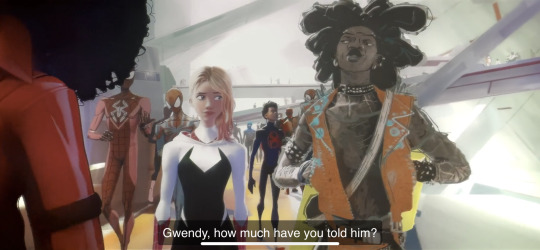
'So what happened about that small elite strike-team?' - 'Most of these are part time.' This is by far one of Hobie's more interesting lines, and I wrote about it here. But in short, this is Hobie's soft but direct confrontation of Gwen. After Gwen lies to Miles in front of him, Hobie immediately asks how much Gwen has revealed to him. And when she tries to play it off, he openly says 'Maybe that's not enough.' He's not angry with Gwen, but he is disappointed, which in turn motivates him to have his discussion with Miles.
"Super humane, and not creepy."
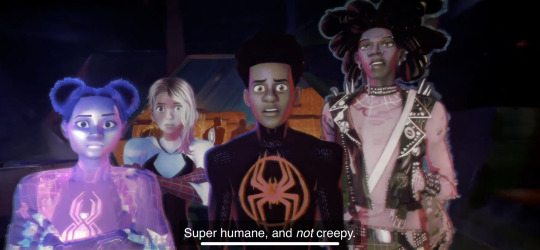
One of my favorites, because it's hard to catch and to the point. After talking about Hobie and Gwen's mission history, they're taken to Margo and the control room. As Miles marvels at Margo and the Go-Home-Machine, and Gwen says she voted against it. However, Hobie says blatantly: 'Holy shit, Miles isn't this inhumane and weird???', validating that the Society is willing to do inhumane, hurtful stuff to those it deems 'misplaced'.
Next comes Hobie's confrontation with Miles.
Because Hobie knows this is his last movements with Miles before he meets Miguel, and this is where if final push of emotional support kicks in, before he goes quiet in front of Miguel.
And because this conversation is so well layered, I think it's best to go line by line. ______________________________
H: "Bet this doesn't even do anything." M: "Maybe it did before you ripped it out of a wall!"
Hobie has now confirmed that he'll be making an exit soon. And he begins his finally sweep of parts he needs for his watch, stocking up his pockets. He's not stealing to steal. He knows he's leaving and this is his last chance to get what he needs before he's out the door.
"Propaganda, bro! It's to distract you from the truth!"
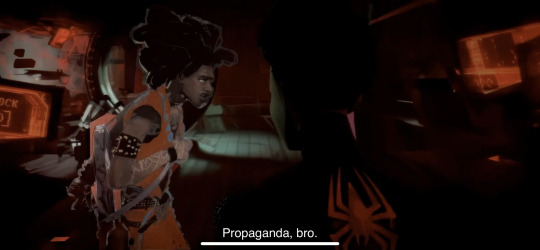
HOLY SHIT I missed this one. Notice how in this shot, Gwen is not visible at all. Hobie notices they're out of hershot of her for the first time. And his first line is - 'Propaganda.' Their watches can take them anywhere. When Gwen needed to, she was taken to exactly where she needed in Mumbattan. But when they're heading towards HQ, Jessica makes them walk through the lobby. They could have been sent directly to Miguel's station, but instead she makes them do the whole tour, which serves as a flex of muscle. In order, Miles was shown the massive number of members in the Society, then their prisoners, then the go-home-machine. Only THEN can they see Miguel. All of which was intent to intimidate Miles on purpose. Hobie tells him directly: 'Everything you just saw was propaganda.'
M: And what's that?
"I ain't got a Scooby Doo, mate. Cause that's what they want."

One of the most iconic and notable of his quotes. Cockney aside, this line ties back in with his discussion with Gwen just a couple minutes before. They've done their tour and walk. Both Jess and Gwen have been given a chance to prime or explain to Miles anything, and both have chosen not to. So Hobie simply tells him, 'They want you in the dark. And they're sending you into a fight.'
The next line is:
H: Why do you want to be part of this lot? M: To get a watch. H: Make your own watch.
Miles sucks his teeth at Hobie.
Because of this - Hobie begins to change methods. Which I cannot stress is incredibly perceptive of him.
Miles is exasperated with him. So instead of dissuasion and making the society out to be uncool, he tries to turn Miles' attention towards his family.
"Bet you got a nice setup, huh? Nice parents?"

This line is a very well done one, with two things of notice. First, I find it interesting that the screenplay phrases this line as a question, not a sentence. Hobie is asking. He's taking a shot in the dark here. And this is backed up by his delivery; Hobie hesitates while saying this. The only line in which he does so. He may not know about Miles' mom and dad, because Gwen hadn't met them when she met Hobie. But still, Hobie asks, hoping the reminder of Miles' parents will dissuade him from continuing.
M: They're fine. H: [After this line, Hobie turns black and white momentarily. Potentially a nod to the fact that this conversation is the only 'black and white' one Miles has had so far.] M: But we got into a fight. They just want what's best for me, so...
[Hobie frowns. The scene and dialogue REALLY starts to pick-up from here.]
"That's a bloody shame. Because you're not ready for everyone else."
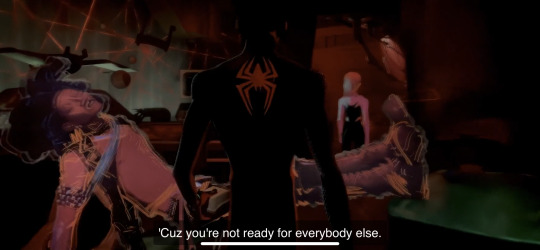
As the scene progresses Hobie goes from behind Miles, to beside him like an ally. Then, when Gwen finally comes back into frame, Hobie crosses in front of him. When Miles mentions his parents wanting what's best for him, Hobie warns that everyone else does not want what's best for him. At the same time, visually Gwen has her back to Miles, and Hobie puts himself between Miles and Gwen, trying to block his path. The scene is set up to show that in Hobie's eyes, Gwen is turning her back on Miles. She does not have his best interest in mind. Hobie is telling Miles 'They're using propaganda on you, they're keeping you in the dark, and they do not have your best interest at mind. You're not ready for this." And he physically tries to block Miles from continuing, one last time.
Miles goes through Hobie, and now within earshot of Gwen again, this is Hobie's final chance and push to get as much information into Miles as he can - without freaking Miles out. Above all else, he needs Miles to be prepared, confident, and willing to fight back.
His voice becomes more serious, and he starts speaking more straight-forward and a lot less cryptically.
"Listen to me, bruv. The whole point of being Spider-man is your independence. Being your own boss, you don't need all this!"
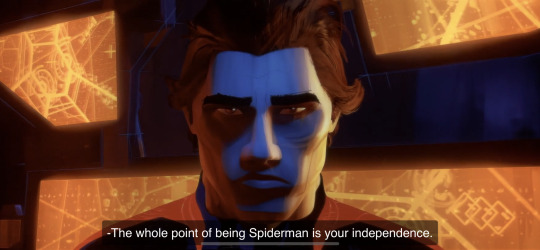
I think Hobie saying this reveals a lot about his character, especially understanding the context where he's from. While many Spider-men would agree that being Spider-man is about responsibility and power - to Hobie, it is about independence, and freedom. Hobie is a freedom fighter, and one of the only Spider-men besides Noir that knows how to fight systemic threats as well as physical ones. To him, being Spiderman is about being able to free yourself and others. It's about independence and freedom, and he's trying to nail that in Miles' head one last time.
M: Then why are you here?
"Looking out for my drummer, is all."
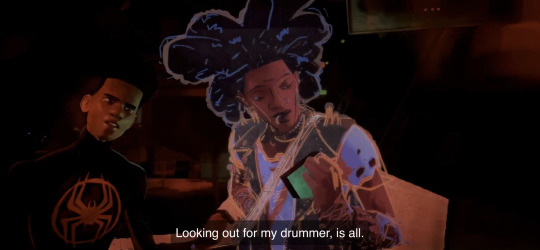
As the scene is coming to a close, the writers chose this time to reveal some of Hobie's motivations, starting with the independence comment, and now this. Despite knowing about Gwen's deception towards Miles, he is still looking out for her - and Miles. This is the writers' and Hobie's last push to solidify himself as an ally to Miles and the viewer.
M: I want to be in a band. I want to see my friends, and I need a watch to do that. G: Guys, come on.
"Alright, Squashed. Just don't enlist until you know about who you're fighting."

I genuinely had to sit and ask myself why the writers would choose to leave Hobie's collective effort - a LOT of effort - with this line. And honestly, I think it's a perfect segway. Hobie chooses his words very clearly; He doesn't say 'what', he says 'who'. The next scene leads into Miguel's intro, and up until this point, Miles doesn't know who he is. He only knows about the Society, but never who is at the top. We know about Miguel, but all Miles knows is his name. That's why Hobie says 'who you're fighting'. Because the Society isn't really a Society, and this isn't really between Miles and the Society at all. It's a dictatorship - and the person he's enlisting to fight is Miguel. The perfect introduction and warning to the person he's about to meet. He's telling Miles, 'Don't rush into it. Wait until you meet Miguel first'. And when Miles does meet Miguel, he finally sees that this isn't the place he thought it was, just like Hobie said. ALSO EVEN MORE INTERESTINGLY - THIS is one of the lines that is changed between the two versions of spiderverse (there are two theatrical versions on release.) In the alternative he says 'Don't enlist unless you know what war you're fighting.' And I think that the fact the writers chose to publish two different versions of this line goes to show how powerful they knew this line would be in Miles' characterization. There is so much Hobie has left to say to him, but only one line - and so we get two versions. How fun!
With the scene now over, we see a change in Hobie's demeanor, and I love the writers' choice to have the shot linger on Hobie.
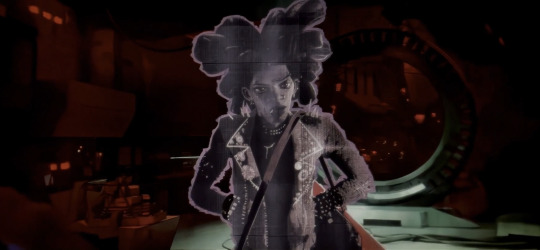
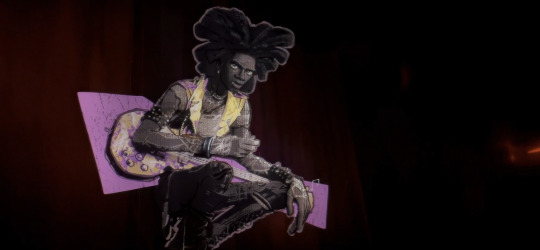
We see him give Miles a look that isn't exactly full of confidence, but from this point forward, Hobie chooses to hang back, no longer having any motivation to instigate. He knows his work here is done, and now all he can really do is wait for Miguel to reveal his true colors, and hope that he got through enough to Miles that he will react, and fight back.
And closing out the scene - I noticed that when Peter B. arrives Hobie pointedly says
"Oh boy, Humbling Reality Spider-man has arrived."

All I'll say about this is Hobie has to be Jamaican cause that was so mfing rude shgjfkghjgjkdfjk
Hobie has about three lines between this point and then end of his screentime - Two of which were his lines to Mayday, and his comment during the canon events.
But there is one shot of him before it all happens. And after this shot the movie begins staging Hobie in specific a very different way than anyone else.
The moment begins with Miles' line 'My Dad is about to be captain.'

The camera pans to each character. Gwen, Peter, and Jess all avert their eyes. Miguel looks at Miles. And Hobie is the only one who looks at all of them. Instead of looking down, he looks to the others, in anticipation of whats going to happen. It's also important to note that this was probably news to Hobie. He probably didn't know Miles' dad was a cop - or at the very least going to be captain. So the understanding of just how much trouble Miles is in kinda multiplies in this moment.
Then, this happens
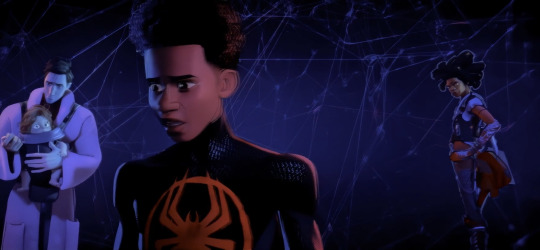
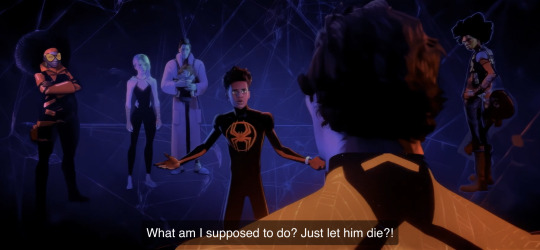
From this point forward, every time Hobie is portrayed, he is shown as separate from the other characters, always being divided from the group - with Miles as the divider. Even as the camera moves, Hobie visually remains - quite literally - as the only person in Miles' corner. And as the scene goes on, he moves farther and farther into that corner.

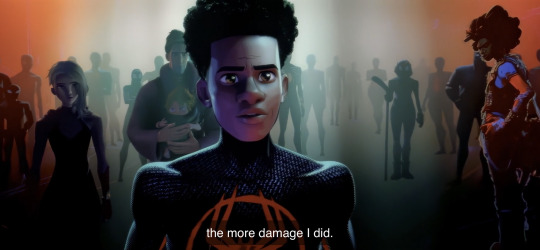
Until finally the scene comes to a climax, and Hobie gets two shots to himself - delivering his final lines.
"Here we go." - "Hobie, You're not helping." - "Good."
GUYS IM GONNA CRY OKAY IM GONNA CRY
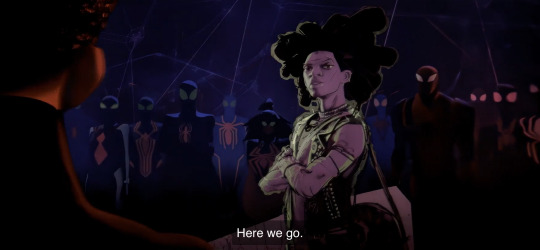
This is Hobie seeing his work pay off. This is him knowing that he got through to Miles and that it was worth it. He's proud of him.
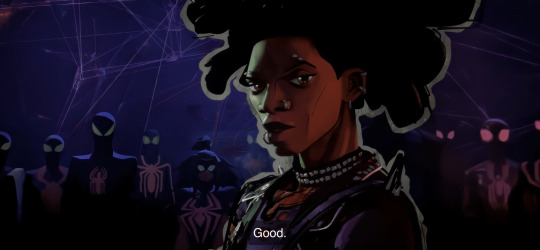
Hobie knew what he came to do, and he used literally every line he said to Miles to the FULLEST extent. He doesn't give a fuck if he's not helping the Society. He's helping Miles. And now he knows his work is done.
Being a punk is not about being a hero, it's about empowering those who feel powerless. HE UNDERSTOOD THE MOTHERFUCKING ASSIGNMENT.
IN SHORT - HOLLYWOOD PAY YOUR FUCKING WRITERS I SWEAR TO GOD.
if you read this far let me know :) thanks bye
4K notes
·
View notes
Text
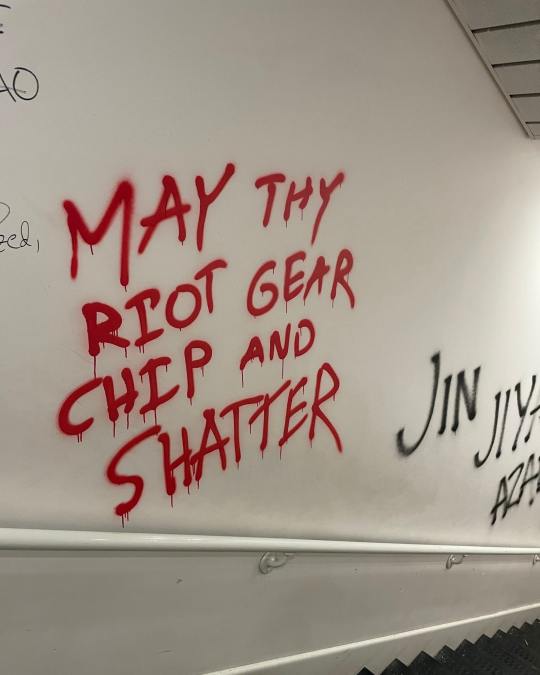
"May thy riot gear chip and shatter"
Seen inside the occupied Portland State University library, where student protesters are preparing for a police raid
50K notes
·
View notes





